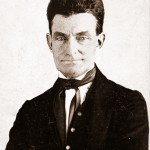I know I’ve given evangelical historians a bit of grief for opposing Donald Trump (opposition is fine, reasons for it another question). But I heard an interview with journalist, Sam Kriss, that captures well my objections to several of the blogs I’ve read.
Here is the historical perspective that Kriss brought to his assessment of Trump:
We are in very dangerous times, of mobs and meaninglessness. People aren’t swayed by facts anymore; they’re indifferent to reality and openly scornful of experts. All they want is to feel good, even if it’s only for an instant, even if it’s at the cost of an entire future. Vast crowds of the pleasure-hungry are being pulled along into increasingly destructive politics by cheap sound bites and tawdry emotion. We’re teetering over the edge, and people hardly even notice—it’s all become theater; society rips itself apart in real time before our eyes, but we approach it like an entertainment product. The question is no longer one of which politician actually has the best judgment and the best plans for the future, but which character is the most relatable, which post we want to hitch our self-identity against. This is madness, but it’s also what’s come to rule our world. You’ve probably heard the name for all this. We are in post-truth politics.
It’s not me saying this, though. This dire warning isn’t about Donald Trump, or Brexit, or the news media covering either, or the tiny reality bubbles of the internet. This is the oldest complaint in the history of political theory, screaming at us from the discipline’s frantic infancy. It’s Plato, writing in the 400s B.C. And he was wrong.
Compare that to the letter that historians signed when they went public with opposition to Trump:
Donald Trump’s candidacy is the latest chapter in a troubled narrative many decades in the making. In another era, civil society institutions such as the academy, the free press and the judiciary were counted on to safeguard constitutional democracy. That this is no longer the case cannot be blamed solely on Trump. Donald Trump’s candidacy has profited from the fears of people living precariously and a political culture of spectacle and cynicism, both of which long predate his emergence as a candidate. The impulses and ideologies that animate the Trump campaign will not disappear once he is defeated in November.
It is all of our job to fill the voids exploited by the Trump campaign, building an inclusive civil society in its place. Along with Historians Against Trump, groups like Writers On Trump and Citizen Therapists are organizing in defense of the ideals in which their professions are grounded. Historians Against Trump will be marching alongside these and many other groups as part of the peaceful protests at the Republican National Convention in Cleveland. We will continue our work into the fall, publishing essays and articles that place Trumpism into historical perspective.babies from being impaled on bayonets? When kings ruled by divine right?
Actually, a historian’s job is not to build an inclusive society. Historians may contribute to that indirectly along with academics in other disciplines. But building an inclusive society is not what historians are trained to do in graduate school. Are footnote and bibliographies ingredients of an inclusive society?
Instead, a historian’s duty is to bring historical perspective and that outlook generally dampens hysteria and allows students of the past to know that we have seen this before and things will either be all right (we’ll get through this) or things will remain the same (we’ll get through this).
That’s why I wish historians had given different reasons for opposing Trump.












